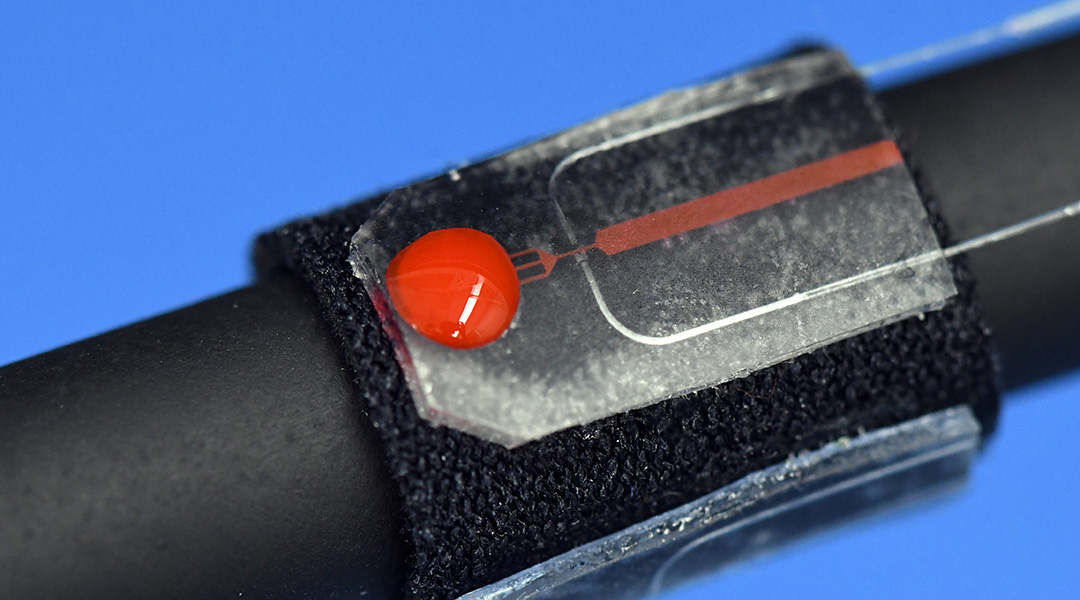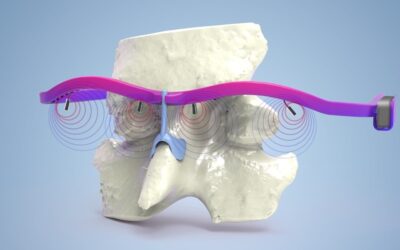Researchers at Boston University have developed a soft sensor that can detect blood during colonoscopies. The sensor can be mounted at various locations to help detect any accidental bleeding as the endoscopist navigates through the patient’s colon, enabling real-time biological blood sensing in these procedures for the first time.
During colonoscopy procedures, surgeons can only detect bleeding at the distal end of the colonoscope with the integrated camera. This new blood sensor can enhance the safety of colonoscopic procedures by providing additional points of detection beyond the distal tip, such that bleeding occurrences can be timely detected throughout the length of the colon.
The study’s lead researcher, Sheila Russo, professor of Mechanical Engineering at Boston University, said the soft sensor is a significant step towards advancing onboard sensing technologies for biomedical applications, paving the way to safer endoscopic procedures, smarter medical instrumentation, and intelligent soft medical robots.
The blood sensor, published in Advanced Intelligent Systems, utilizes miniaturized channels that can intake droplets of blood into the device. The blood flow passes through light transmitting waveguides and then scatters and absorbs the incident light. The waveguides are coupled to an electronic circuit, and presence of blood in the channel causes a change in the monitored signal. The sensor was able to detect varying concentrations of blood in its channel and alert the surgeon. It was also able to discriminate between other fluids present in the intestine, such as gastric fluid.
The sensor was validated using a mock colon model that allowed insertion of a colonoscope with the sensors attached along the circumference. Bleeding areas were simulated, and the sensor was able to successfully detect bleeding as the colonoscope passed through these locations. In the future, researchers are hoping to test the blood sensors in an in vivo animal model to determine its efficacy in realistic surgical scenarios.
The blood sensor is manufactured through microfabrication techniques that allow the sensor to be highly compact with minimal increase in the diameter of the colonoscope. The sensor is made entirely of soft biocompatible materials, such as clear silicones and polyurethanes. This gives it a high degree of flexibility and conformability, allowing it to be attached to any type of colonoscope, without affecting its capability to navigate through tortuous regions of the colon.
Additionally, the materials are optically clear and have different optical properties. This allows efficient light transmission from optical fibers into the waveguides of the sensor to produce an accurate signal.
“These advanced sensing capabilities are achieved by combining innovations in different areas including soft sensing, optics, millimeter-scale fabrication, and microfluidic technologies,” Russo said. “This research has the potential to enable novel approaches in diagnosis and therapy in minimally invasive endoscopic surgery, higher colonoscopy completion rate, and higher rates of compliance with screening guidelines.”
Reference: A. Gerald et al., A Soft Sensor for Bleeding Detection in Colonoscopies, Advanced Intelligent Systems (2021), DOI: aisy.202100254














